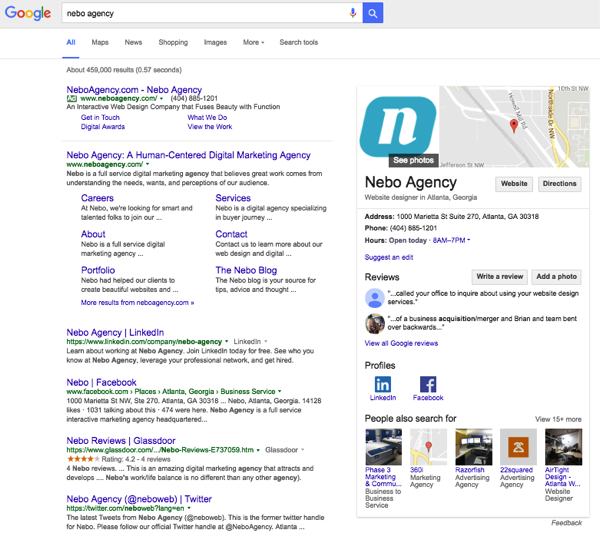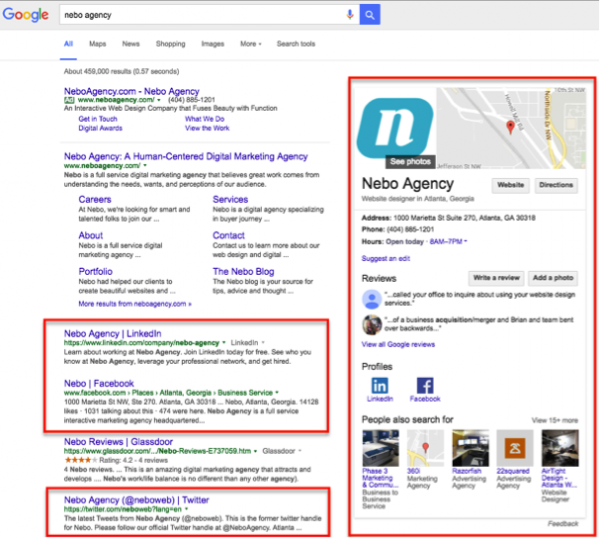Why SEOs Should Get Social
We SEOs know that what we do is best. We reign supreme and all other digital marketing specialties just wish that they were our specialty. They all want, just for a second, to bask in the awesomeness of true organic visibility.
Paid media might protest. They might say that organic results are just part of the whole. Paid ads come first and foremost in the SERPs and organic visibility cannot deliberately target the user at different touch points in their buyer journey, or gently remind the user to return to their site. And to that, we say, sure. You can pay for clicks and impressions. You can pay for lots of things, that doesn’t make it meaningful. We all know that PPC only exists to feed us SEOs granular data.
Content might also chime in. They would say that they spend their days crafting inspiring copy to cut through the din and address the user directly. They think that without them there would be no brand voice, that without them engagement would plummet. But we know that they are only here to flesh out our ideas, to strengthen our keyword themes with every word until we achieve visibility. They are the worker bees and we are the queen. Buzz, content, buzz.
And isn’t social media just adorable? With their hearts and likes and shares… so sweet. But we don’t actually care about social because Google told us that likes and shares don’t factor into the algorithm. Algorithm good. Everything else bad.
So is there any reason for SEO to think twice about social? Actually, yes.
Enter the Branded Search
This is what you’ll see when you google “Nebo Agency”:

That’s a proud SERP, am I right? Look at that coverage!
Now really look at that coverage, and look at the amount of real estate that is taken up by our social channels:

Your profiles from Facebook, Twitter, LinkedIn, YouTube, Pinterest and Instagram can all rank among the top results for a branded search. Boom! Visibility. What’s more, Google will pull in rich results from certain platforms like Twitter and YouTube. Boom! Shinier visibility.

The important thing is that you operate on the platforms that make the most sense for your brand. Choose the channels where you will regularly post content and where your audience can engage with your brand in a meaningful way. And also use Google+. It may not be the best or the sexiest social platform, but owning and optimizing your Google+ and Google My Business accounts is key to getting a Knowledge Panel. So do that.
Enter the Plug for Schema Markup
Schema.org markup language helps us SEOs out all the time. We use it to call out important brand information, product listings, ratings, and more, which in turn helps Google interpret our websites. But did you know that you can also use it to call out your social channels to Google and increase the likelihood that they will be pulled into your Knowledge Panel? It’s true! Google even tells you how to do it. You can also use Schema to enable rich pins on Pinterest.
Repeat after me: Schema is an awesome and essential factor in true organic visibility.
Exit Your Domain
We spend a lot of time focused on getting the individual pages of our sites to rank in the SERPs. Every page, every subpage, and every subpage of that subpage gets optimized for a unique keyword theme in the hopes that it might – someday – achieve organic visibility. It’s easy to think that everything off-page is either a link opportunity or it’s wasting your time.
But if we turn our awesome powers of optimization toward our social channels, the kind and benevolent Google will reward us. Likes and shares may not be official ranking factors, but a well-executed, quality keyword strategy always is. Optimizing within specific channels can improve your visibility within those given platforms and Google will even display individual posts (such as pins and videos) in the SERPs.
If you have a YouTube channel, you should optimize everything from your “About” page to each individual video. Use keyword planner, suggestive search and any other tool in your belt to craft titles and descriptions that are compelling (and link back to your domain). Utilize tags and playlists. Do it. YouTube is the second largest search engine in the world. This is worth your time.
If your brand is active on Pinterest, optimize your pins and boards! Let suggestive search be your guide when doing your research. Don’t get distracted by recipes for the best ever slow cooker recipes for workday lunches.
Takeaways: Social + SEO 4ever
If you get nothing else out of this blog, please take with you the bulleted version of everything above:
- Social can greatly increase your organic footprint for branded queries.
- Social optimization comes down to the fundamentals: creating quality content and utilizing thoughtful keyword research.
- Schema markup is magical and necessary.
And, algorithms be damned, likes and shares build brand awareness and get content in front of users… which is, perhaps, akin to the awesomeness of true organic visibility.


Comments
Add A CommentSchema in my opinion is a tightrope between being something I'd recommend or something I'd avoid. The reason for that is the fact that most beginner seo's don't understand the true value and purpose of Schema and use it too much to the point of it being unnatural. I've seen multiple sites penalized by unnaturally manupliating Schema results to increase their rankings. However your way of utilizing Schema in the social aspect is the way every single seo and agency SHOULD use it.